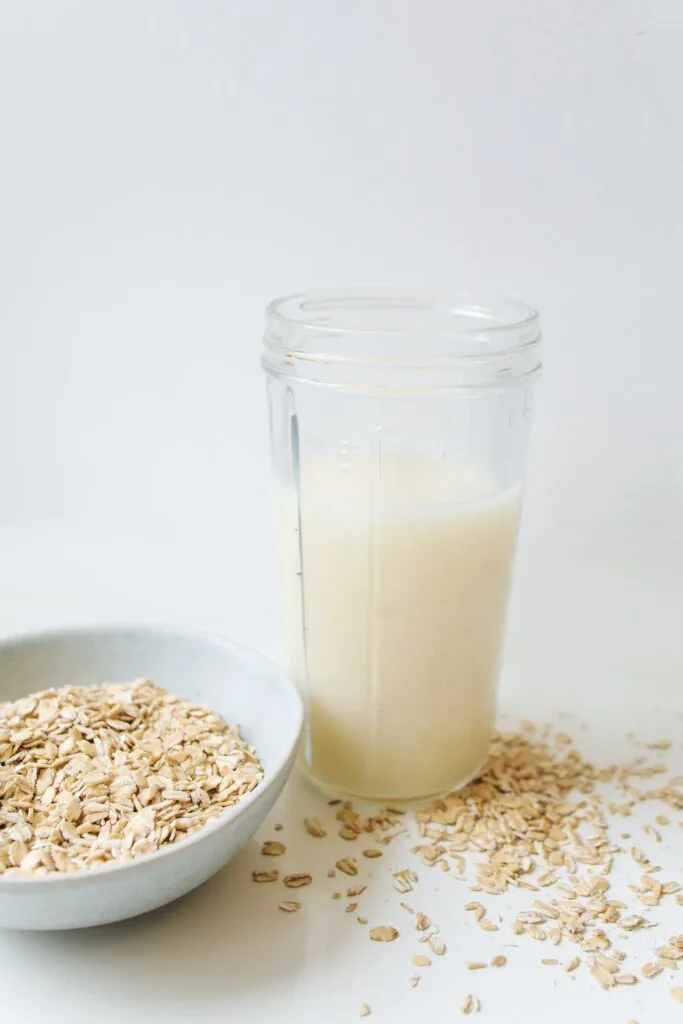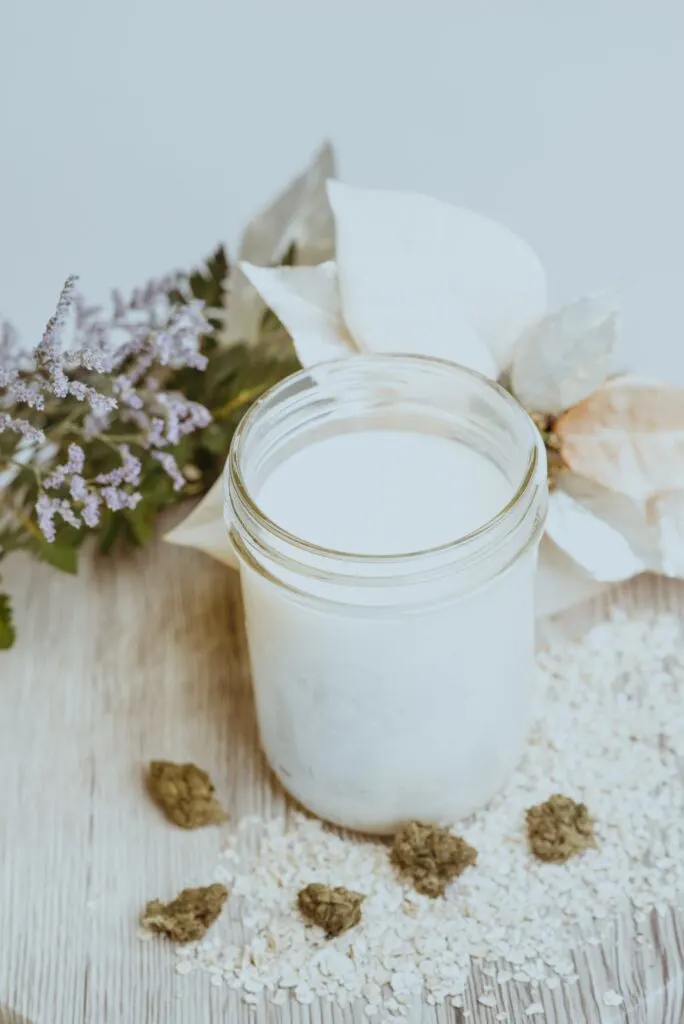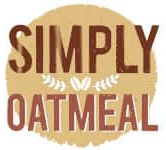Oatmeal water, made from soaking oats in water and extracting their nutrients, has gained popularity as a healthful beverage with a multitude of benefits. Beyond being a comforting and versatile breakfast option, oatmeal water offers a range of advantages that contribute to overall well-being. Rich in fiber, vitamins, and minerals, this concoction is known to support heart health, aid digestion, and provide a sustained energy boost. Learn more about the many benefits of oatmeal water!

Its ability to regulate blood sugar levels, promote weight management, and enhance skin health has made it a staple in many individuals’ daily routines. In this holistic approach to nutrition, oatmeal water emerges as a simple yet potent elixir that not only satisfies the palate but also nurtures the body with a host of essential nutrients.
What Is Oatmeal?
Oatmeal is a type of porridge made from oats, a cereal grain known for its health benefits. Oats are a whole-grain food, scientifically known as Avena sativa.
Oatmeal is typically prepared by boiling oats in water or milk, and it can be enjoyed in a variety of ways, either sweet or savory, depending on the toppings or additional ingredients used.
Types Of Oatmeal
Oatmeal comes in various types, each differing in processing methods, cooking times, texture, and taste.
Understanding these types can help you choose the right one for your dietary needs and preferences. Here are the main types of oatmeal.
Steel Cut Oats
Steel-cut oats, also known as Irish oats or pinhead oats, are a type of whole grain oats that have been minimally processed.
They are made by chopping the whole oat groat (the oat kernel with the hull removed) into two or three pieces using a steel blade, hence the name “steel-cut.” This process retains more of the whole grain’s natural nutrients, texture, and flavor compared to more processed forms of oats.
Characteristics of Steel-Cut Oats:
Texture: Steel-cut oats have a chewier, coarser texture compared to rolled or instant oats. When cooked, they have a slightly nutty flavor and a firm, chewy consistency.
Nutritional Value: They are a rich source of dietary fiber, particularly beta-glucan, which is known for its cholesterol-lowering and heart health benefits. Steel-cut oats also provide protein, vitamins, and essential minerals like iron, magnesium, and zinc.
Cooking Time: One of the main differences between steel-cut oats and other forms of oats is the cooking time. Steel-cut oats take longer to cook, typically around 20-30 minutes, although this can vary.
Health Benefits: Regular consumption of steel-cut oats can offer several health benefits, including improved digestion, stabilized blood sugar levels, reduced risk of heart disease, and aiding in weight management. The high fiber content provides a feeling of fullness, which can help with appetite control.
Culinary Uses: Steel-cut oats are often used for breakfast porridge, and their robust texture makes them suitable for slow-cooked recipes. They can also be used in baking, in savory dishes, or in overnight oats recipes where they are soaked rather than cooked.
Storage: They should be stored in a cool, dry place, and because they are less processed, they may have a longer shelf life than more processed forms of oats.
Rolled Oats
Rolled oats, also known as old-fashioned oats, are a popular type of oatmeal commonly used in a variety of dishes, from breakfast to baking. They are made from oat groats (the inner kernel of the oat grain with the hull removed) that have been steamed and then rolled into flat flakes under heavy rollers. This process stabilizes the healthy oils in the oats, extending their shelf life and making them quicker to cook.
Characteristics of Rolled Oats:
Texture and Flavor: Rolled oats have a milder flavor and softer texture compared to steel-cut oats. When cooked, they tend to be creamy while still retaining some bite.
Nutritional Value: Like other forms of oats, rolled oats are a good source of soluble fiber, particularly beta-glucan, which is beneficial for heart health and blood sugar control. They also provide essential nutrients such as protein, iron, magnesium, and zinc.
Cooking Time: Rolled oats cook faster than steel-cut oats due to their thinner and flatter shape. They typically take about 5-10 minutes to cook on the stovetop.
Versatility: They are extremely versatile in the kitchen. Rolled oats can be used for making oatmeal, added to baked goods like cookies, muffins, and bread, used in granola or muesli, and even as a thickening agent in soups and stews.
Health Benefits: Regular consumption can aid in lowering cholesterol levels, stabilizing blood sugar, promoting healthy gut bacteria, and providing a long-lasting source of energy. The high fiber content also helps in weight management by promoting a feeling of fullness.
Storage and Shelf Life: Rolled oats should be stored in a cool, dry place. They have a longer shelf life than steel-cut oats due to the stabilization process during manufacturing.
Quick and Instant Variants: There are also “quick-cooking” rolled oats, which are simply rolled oats that have been cut into smaller pieces to cook more rapidly. Instant oats are rolled oats that are pre-cooked and dried before being rolled even thinner than quick oats, allowing for instant preparation.
Instant Oats Or Quick Oats
Quick oats and instant oats are both convenient variations of traditional rolled oats, designed to reduce cooking time while still providing the health benefits of whole-grain oats. Though they are similar, there are key differences between them.
Read on to learn about the differences and how they contribute to the benefits of oatmeal water.
Instant Oats
Processing: Instant oats are the most processed form of oats. They are pre-cooked, dried, and then rolled very thinly. This makes them cook very quickly.
Cooking Time: As the name suggests, instant oats cook almost instantly. They typically just need to be mixed with hot water or milk and allowed to sit for a few minutes.
Texture: They tend to have a softer, mushier texture compared to other types of oats due to the thinness of the flakes and the pre-cooking process.
Flavor and Additives: Often, instant oats come in a variety of flavors and may contain added sugars, salt, or other flavorings. Plain instant oats are also available for those looking to avoid added ingredients.
Use: Instant oats are ideal for those who need a very quick and convenient meal, like a fast breakfast or a simple snack. They’re also good for making smoothies or adding to baking recipes.
Quick Oats
Processing: Quick oats are similar to traditional rolled oats, but they are cut into smaller pieces before being rolled. This makes them cook faster than regular rolled oats but slower than instant oats.
Cooking Time: They typically cook in about 1-3 minutes, making them a convenient option for a quick meal.
Texture: Quick oats have a softer texture than traditional rolled oats but are less mushy than instant oats. They retain some of the chewiness and texture of regular oats.
Flavor: Like instant oats, quick oats can be found in various flavored varieties, but plain quick oats are also commonly available.
Use: They are versatile for cooking and baking, suitable for those who want a quicker cooking option than traditional rolled oats but prefer a more substantial texture than instant oats offer.

What Is Oatmeal Water?
Oatmeal water is a nutritious and hydrating drink made from soaking oats in water. It is a simple, yet powerful beverage that extracts the soluble fiber and nutrients found in oats into a liquid form. This drink has been gaining popularity as a health tonic due to its numerous benefits and ease of preparation.
Benefits Of Oatmeal Water
Heart Health Champion
One of the standout benefits of oat water is its positive impact on heart health. Rich in beta-glucan, a type of soluble fiber, oat water can help reduce bad cholesterol (LDL) levels. Regular consumption may lower the risk of heart disease, making it a heart-friendly addition to your diet.
Blood Sugar Stabilizer
For those managing diabetes or looking to maintain stable blood sugar levels, oat water is an excellent choice. The beta-glucan in oat water aids in the slow absorption of sugars, preventing sudden spikes in blood glucose.
Weight Management Ally
Oat water can be a valuable tool in weight management. The soluble fiber provides a feeling of fullness, potentially curbing appetite and aiding in calorie control.
Digestive Health Promoter
The dietary fiber in oat water also supports digestive health. It can aid in regular bowel movements and prevent constipation, contributing to a healthy gut.
Hydrating and Nutritious
As a water-based beverage, oat water is inherently hydrating. It’s a healthier alternative to sugary drinks, providing hydration along with essential nutrients.
Skin Health
Although most oat-related skin benefits come from topical application, consuming oat water might also contribute to skin health due to oats’ anti-inflammatory properties.
Low in Calories and Natural
For those mindful of calorie intake, oat water is a natural, low-calorie option. Free from artificial ingredients, it’s a wholesome choice for health-conscious individuals.
Versatile and Easy Preparation
Oat water’s versatility makes it a delightful addition to any diet. It’s incredibly easy to prepare and can be flavored naturally to suit your taste preferences.
Lactose-Free and Vegan-Friendly
Oat water is an excellent option for those with lactose intolerance or those following a vegan diet, providing a plant-based alternative to dairy milk.
Incorporating Oat Water Into Your Routine
Embracing oat water is as simple as soaking oats overnight and straining the mixture in the morning. You can enjoy it plain, add it to smoothies, or use it as a base in various recipes. With its mild flavor, oat water can easily become a staple in your daily hydration routine.
Yes, drinking water with oatmeal is good for you as it provides hydration, fiber, and nutrients beneficial for digestion, heart health, and satiety.
Drinking oatmeal water daily can lower cholesterol, aid digestion, and help stabilize blood sugar, but balance in diet is key for overall health.
Yes, oatmeal made with water is still nutritious and a good option for those preferring a lighter meal or avoiding dairy. Thankfully there are many benefits of oatmeal water!
Drinking oatmeal water in the morning aids digestion, stabilizes blood sugar, and provides lasting energy with essential nutrients.
You May Also Like
- Overnight Oats with Oat Milk
- Overnight Oats with Chia Seeds
- Almond Milk Overnight Oats
- Overnight Oats with Protein Powder
- Overnight Oats with Water
If you enjoy this post about the benefits of oatmeal water, please leave a comment!
